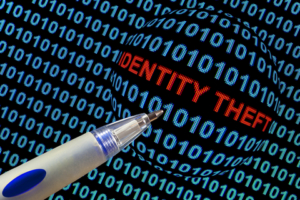Identity Theft Protection 101
What’s it called if, for example, someone runs up your credit card line without your permission? Identity theft. ID theft isn’t necessarily someone going around impersonating you. But it is considered someone taking over your accounts.
 Account takeover is also someone hacking into your computer and getting the password for your PayPal account, then sucking it dry. ID theft is an extremely common occurrence. The damage incurred by ID theft runs along a continuum, from light to heavy. At its worst it can:
Account takeover is also someone hacking into your computer and getting the password for your PayPal account, then sucking it dry. ID theft is an extremely common occurrence. The damage incurred by ID theft runs along a continuum, from light to heavy. At its worst it can:
- Cost thousands of dollars to repair the fallout
- Take months to fix this
- Destroy reputation
- Cause difficulty finding employment
- Cause rejection of loan applications
- Cause the victim to be arrested because the identity thief committed a crime in their name
There are tons of ways one can become a victim. It used to be that ID thieves would steal a wallet and gain information that way, or dig through your rubbish for bank statements. But these days, ID theft is prolifically committed in cyber space by thieves thousands of miles away.
For example, a thief halfway around the globe could trick you into giving your bank account information by sending an e-mail that looks like it’s from your bank, telling you that your online account has been compromised and that you need to supply your account information to repair the problem.
Or, clicking on a link that promises to show you a nude celebrity instead downloads a virus to your computer.
ID theft can also occur through no lapse in judgment of your own: when the retailer you buy things from with a credit card is hacked.
Protect Yourself
- All of your computer devices should have software: antivirus, antimalware and a firewall, and always updated.
- Educate yourself on recognizing scams. Some are ingenious and look legitimate. One way to drastically reduce the odds of being tricked by a ruse is to never, never, never click on any links in an e-mail. Never.
- Make all of your passwords unique, over 10 characters and a mix of numbers, letters and symbols: gibberish rather than the name of your favorite rock band or sport.
- View your credit report (it’s free) once a year from each of the three credit reporting agencies. Look for odd things like new accounts opened that you never opened and other false information.
- If you’re sure you won’t be applying for a loan for a long time, freeze your credit.
- Use only reputable merchants for online shopping when possible (we all know this rule doesn’t apply when you want to buy those big clumpy home-baked chocolate cookies from “Denise’s Gourmet Cookies”).
- Missing snail mail bills? Report this to the associated companies because a thief may have changed your billing address.
- Use a VPN. A virtual private network such as Hotspot Shield is one significant layer to protect your data and your identity by encrypting your information.
Consider it a red flag if you receive credit cards you didn’t apply for, especially if they have high interest rates.
Robert Siciliano is an Identity Theft Expert to Hotspot Shield. He is the author of 99 Things You Wish You Knew Before Your Identity Was Stolen See him discussing internet and wireless security on Good Morning America. Disclosures.


























